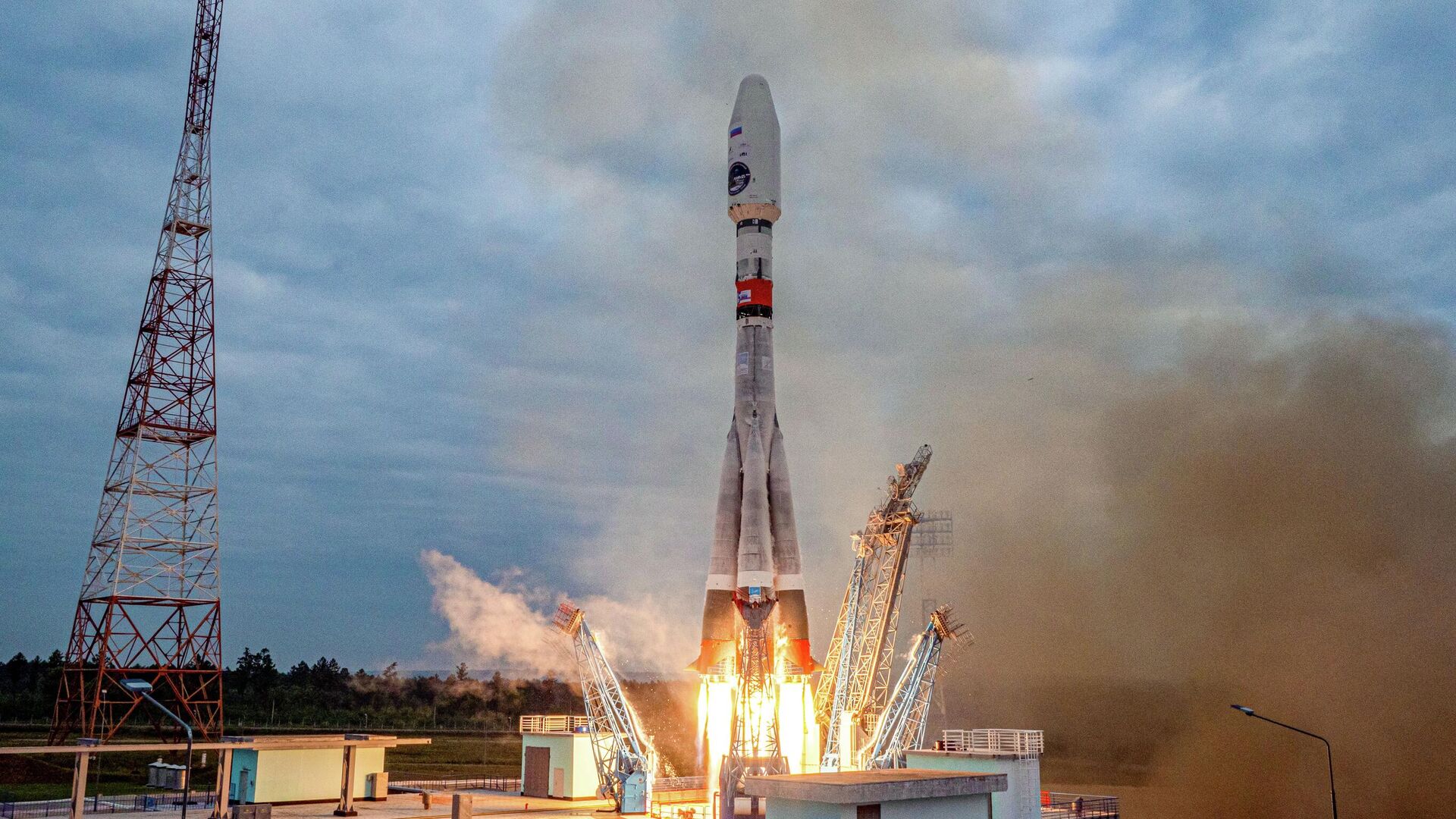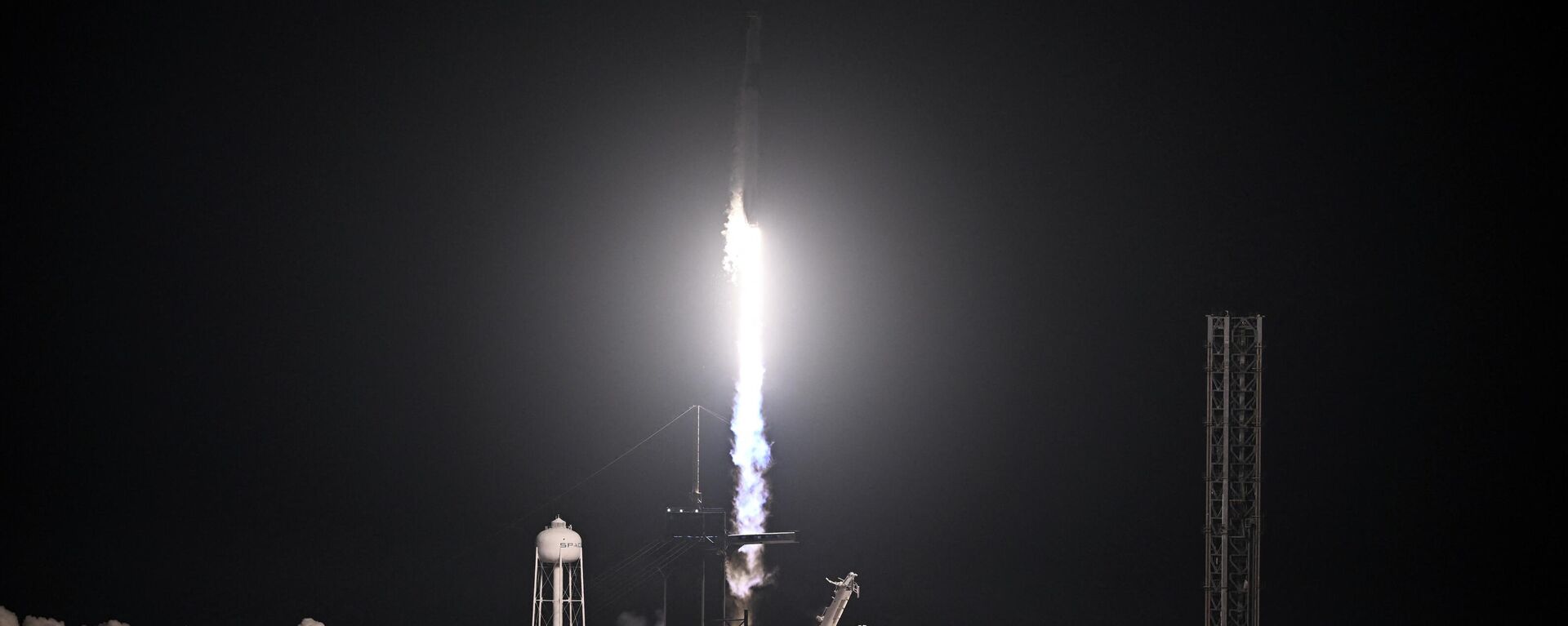https://en.sputniknews.africa/20230811/russias-luna-25-mission-successfully-put-on-flight-trajectory-to-moon-1061238655.html
Russia's Luna-25 Mission Successfully Put on Flight Trajectory to Moon
Russia's Luna-25 Mission Successfully Put on Flight Trajectory to Moon
Sputnik Africa
The nearly 800-kilogram Luna-25 spacecraft, carried by a Soyuz 2.1b rocket, is part of the Russian lunar program for the exploration and practical use of the... 11.08.2023, Sputnik Africa
2023-08-11T11:49+0200
2023-08-11T11:49+0200
2023-08-11T11:49+0200
russia
space
space exploration
roscosmos
international
https://cdn1.img.sputniknews.africa/img/07e7/08/0b/1061240421_0:256:2731:1792_1920x0_80_0_0_0423e0c47aad958c2b54700f070512c8.jpg
Russia's Luna-25 automatic landing module has separated from the Fregat upper stage and has been put on the flight trajectory to Earth's only natural satellite, Russian state space corporation Roscosmos said on Friday.The second stage is the flight to the Moon, which will take five days, before which adjustments will be made: the first - 1.5 days after the launch, the second - one day before entering into orbit around the Moon.The next phase will commence with the station's braking by means of the propulsion system - a flight around the Moon in a circular circumpolar orbit with an altitude of 100 km, which will last three days.Then the spacecraft is due to move on to the fourth stage, to make a soft landing at the Moon's South Pole in the area north of the Boguslawsky crater on August 21, the space corporation said.Yuri Borisov, the head of Russian state space corporation, called the mission "a new page in the exploration of the Moon."He added that the next three Russian Luna missions are expected to be launched within the next seven yearsThe Roscosmos chief added that Russia and China will move toward the "possibility" of a manned landing on the Moon and the construction of a lunar base after the launch of the Luna-28 mission.The Indian Space Research Organization congratulated Roscosmos for the successful launch of Luna-25.
https://en.sputniknews.africa/20230727/cosmonaut-borisov-says-wants-to-compare-flying-on-spacexs-crew-dragon-to-soyuz-spacecraft-1060804860.html
russia
space
Sputnik Africa
feedback@sputniknews.com
+74956456601
MIA „Rossiya Segodnya“
2023
Maxim Grishenkin
https://cdn1.img.sputniknews.africa/img/07e7/0a/17/1063018107_0:0:1104:1103_100x100_80_0_0_03090c85a11f5d2e8a19cf1d989443c9.jpg
Maxim Grishenkin
https://cdn1.img.sputniknews.africa/img/07e7/0a/17/1063018107_0:0:1104:1103_100x100_80_0_0_03090c85a11f5d2e8a19cf1d989443c9.jpg
News
en_EN
Sputnik Africa
feedback@sputniknews.com
+74956456601
MIA „Rossiya Segodnya“
Sputnik Africa
feedback@sputniknews.com
+74956456601
MIA „Rossiya Segodnya“
Maxim Grishenkin
https://cdn1.img.sputniknews.africa/img/07e7/0a/17/1063018107_0:0:1104:1103_100x100_80_0_0_03090c85a11f5d2e8a19cf1d989443c9.jpg
russia, space, space exploration, roscosmos, international
russia, space, space exploration, roscosmos, international
Russia's Luna-25 Mission Successfully Put on Flight Trajectory to Moon
The nearly 800-kilogram Luna-25 spacecraft, carried by a Soyuz 2.1b rocket, is part of the Russian lunar program for the exploration and practical use of the Moon and its orbit to create a fully automated lunar base.
Russia's Luna-25 automatic landing module has separated from the Fregat upper stage and has been put on the flight trajectory to Earth's only natural satellite, Russian state space corporation Roscosmos said on Friday.
"The automatic station is on the trajectory to the Moon and has separated from the Fregat upper stage," Roscosmos said in a statement.
The second stage is the flight to the Moon, which will take five days, before which adjustments will be made: the first - 1.5 days after the launch, the second - one day before entering into orbit around the Moon.
The next phase
will commence with the station's braking by means of the propulsion system - a flight around the Moon in a circular circumpolar orbit with an altitude of 100 km, which will last three days.
Then the spacecraft is due to move on to the fourth stage, to make a soft landing at the Moon's South Pole in the area north of the Boguslawsky crater on August 21, the space corporation said.
After the landing, the mission will collect lunar soil samples and examine them for the presence of ice.
Yuri Borisov, the head of Russian state space corporation,
called the mission "a new page in the exploration of the Moon."
He added that the next three Russian Luna missions are expected to be launched within the next seven years
"We hope to launch Luna-26 in 2027, Luna-27 in 2028, and Luna-28 somewhere by 2030 or after 2030," Borisov noted.
The Roscosmos chief added that Russia and China will move toward the "possibility" of a manned landing on the Moon and the construction of a lunar base after the launch of the Luna-28 mission.
The Indian Space Research Organization congratulated Roscosmos for the successful launch of Luna-25.



